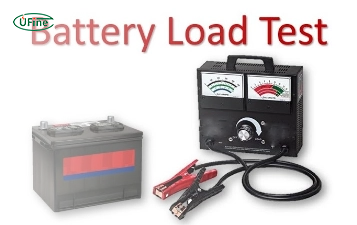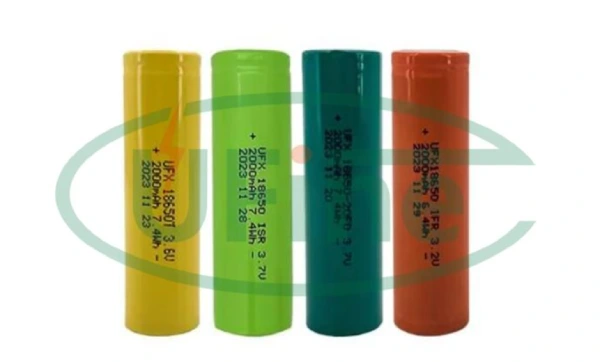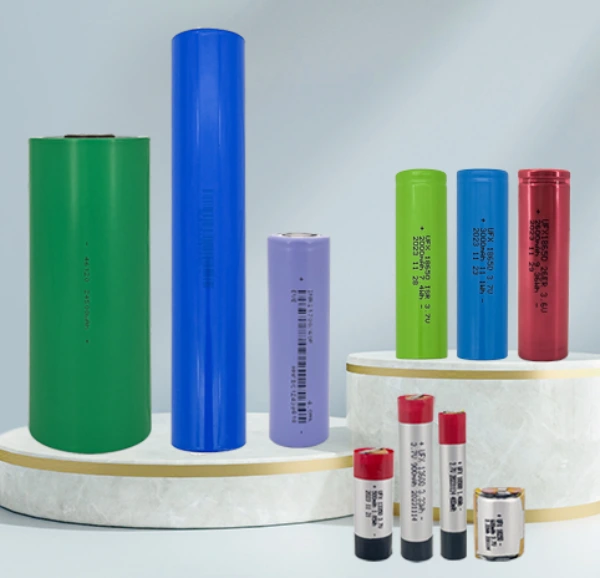
- Part 1. What are lithium ion cells 18650?
- Part 2. Advantage of using 18650 lithium ion battery cells
- Part 3. Potential devices and applications rely on lithium ion cells 18650
- Part 4. How to choose lithium-ion cells?
- Part 5. Charging and maintenance tips for lithium ion cells 18650
- Part 6. The future of lithium ion cells 18650
In an increasingly digital world, portable devices are now integral to our daily lives. Our lives completely rely on these devices for day-to-day tasks. From smartphones to electric vehicles, the demand for high-performing energy batteries continues to rise. Therefore, in recent years, batteries have been modernized with more efficiency and longevity. Among various battery technologies, lithium-ion cells 18650 have emerged as a dominant force that powers almost every small gadget of daily life. This guide will dive into the world of 18650 lithium ion battery cells.
Part 1. What are lithium ion cells 18650?
An 18650 lithium battery size is cylindrical with an 18mm diameter and 65mm length. It is also known as lithium battery 3.7 v 18650 due to its voltage range of 3.6 to 3.7 volts. Let’s closely examine the construction and working mechanism of this famous small-sized battery.
Inside the 18650 lithium ion battery cells, four basic components make it a rechargeable battery.
1. Cathode
It is a positive electrode of the battery consisting of lithium nickel cobalt aluminum oxide (LiNiCoAlO2)
2. Anode
The anode is the negative electrode that is made of graphite. In the process of charging, lithium ions drive from the cathode to the anode as charge storage.
3. Separator
It works as a barrier between the cathode and the anode. Usually made of a thin pronouns material. However, it allows lithium ions to move from cathode to anode and charge and anode to cathode in discharging states. In lithium battery 3.7 v 18650, separate prevents direct contact of cathode and anode to avoid any short circuit or explosion.
4. Electrolyte
This is like a conductive solution of lithium-ion cells 18650, helping to facilitate the movement of lithium ions between the cathode and anode. Usually, it consists of lithium salt dissolved in an organic solvent.
Part 2. Advantage of using 18650 lithium ion battery cells
- High Energy Density: Compared to other rechargeable batteries, the lithium battery 3.7 v 18650 comes in a small size and has a higher amount of energy. As the 18650 lithium battery size is much smaller in energy-to-size ratio, it is the first choice for everyone.
- Long Lifespan: 18650 lithium ion battery cells boast a high cycle life, which can be charged and discharged hundreds of times before losing significant capacity. On average, a good cell can withstand 300 to 500 charge cycles before dropping its capacity to 80%. This means a cell can perform for an extended period.
- Low Self-Discharge: Unlike older battery technologies, this battery holds the charge very well when not used. This means your devices will be ready to go even after sitting idle for extended periods.
- No Memory Effect: 18650 lithium ion battery cells don’t suffer from the “memory effect,” where partial discharges reduce their overall capacity. You can recharge them anytime without impacting performance.
- Widely Available: The popularity of the lithium ion cells 18650 makes them readily available from various manufacturers and retailers. This allows for easy replacements and project building.
- Lower Cost: One of the factors of its popularity is the lower cost. 18650 lithium battery price starts from $1 and goes up to $5 depending upon the quality and capacity of the cell. However, if you are looking for a higher quality at a reasonable price, Ufne Battery is the best solution. There, you can get a quote for the 18650 lithium battery price.
Part 3. Potential devices and applications rely on lithium ion cells 18650
In today’s world of technology, you will find lithium ion cells 18650 in almost every small electric gadget. It is a versatile battery that is usable in single series and parallel mode. Here are some of the day-to-day devices that are using this lithium battery: 3.7 v 18650.
Consumer Electronics: Laptops, tablets, smartphones, digital cameras, flashlights, wearable tech (smartwatches, fitness trackers), vape pens, etc.
- Energy Storage Systems: Some home energy storage systems use banks of 18650 cells to store solar energy for later use.
- Power Tools: Cordless drills, saws, wrenches, impact drivers, etc.
- Medical Devices: Hearing aids, blood pressure monitors, portable nebulizers, etc.
- Toys: Remote-controlled cars, drones, etc.
- Power Banks: Portable chargers that can be used to recharge smartphones, tablets, and other devices on the go.
Part 4. How to choose lithium-ion cells?
Choosing is not as simple as you think. There are different kinds of cells that have capacities from 1000mah to 3500mah. Therefore, you should consider several factors to achieve optimal performance and safety.
First of all is the capacity of the cell in mah; a higher mah means a longer run time and energy capacity.
The second thing to determine is matching the operation voltage as lithium battery 3.7 v 18650 should match the device’s needs.
Thirdly, you should decide if the cell is protected or not because it is compulsory to be compatible with the device where you are installing.
Lastly, brand consideration is important when installing a good quality cell for the device in the long run. Ufine battery is a good option as it is one of the top-quality manufacturers of 18650 lithium-ion battery cells.
Part 5. Charging and maintenance tips for lithium ion cells 18650
Choosing is not as simple as you think. There are different kinds of cells that have capacities from 1000mah to 3500mah. Therefore, you should consider several factors to achieve optimal performance and safety.
First of all is the capacity of the cell in mah; a higher mah means a longer run time and energy capacity.
The second thing to determine is matching the operation voltage as lithium battery 3.7 v 18650 should match the device’s needs.
Thirdly, you should decide if the cell is protected or not because it is compulsory to be compatible with the device where you are installing.
Lastly, brand consideration is important when installing a good quality cell for the device in the long run. Ufine battery is a good option as it is one of the top-quality manufacturers of 18650 lithium-ion battery cells.
Part 6. The future of lithium ion cells 18650
Lithium battery 3.7 v 18650 is a well-understood and mature technology. Due to its wide usage in many electronic appliances, we can determine that we will see some new models in the future. However, adopting newer technologies and fast development have made the future a mixed bag. These lithium ion battery cells 18650 will rule for a longer time if some new features and technology are added to the working ability of these cells.
Related Tags:
More Articles

Battery Load Test: A Comprehensive Guide
Step-by-step battery load test guide for car, solar & industrial use. Learn how to load test a battery, interpret voltage charts, and avoid common mistakes.
The Comprehensive Guide to Battery Balancing and Battery Balancer
Discover how battery balancers improve lithium battery performance, lifespan, and safety. Learn types, functions, and tips to choose the right balancer.
What Is the Best Voltage for a Chainsaw Battery?
Compare 12V-80V chainsaw batteries for light pruning, medium firewood, and professional cutting. See best battery chainsaw with runtime charts and safety tips.
Lithium VS. Alkaline Batteries: A Comprehensive Comparison
Lithium batteries last 3–7× longer than alkaline and perform better in cold weather. Compare lifespan, cost, safety, and best uses to choose the right battery.
Comparing Lithium-Sulfur and Lithium-Ion Batteries: Which is Right for You?
Compare lithium-sulfur (Li-S) and lithium-ion batteries on energy, lifespan, cost, safety, and applications. Best choice for drones, EVs, and electronics.




